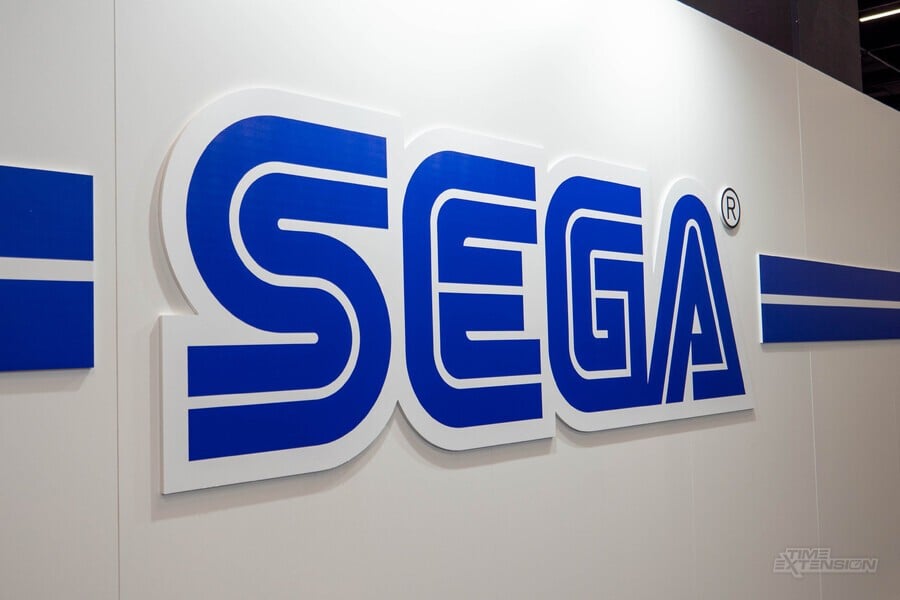
Earlier this year, we reported on a fundraising drive by the non-profit preservation group Video Game Preservation Museum to save a collection of undumped GBA, DS, DSi, and 3DS games that were at risk of falling into the hands of private collectors.
This haul of games included prototypes of titles such as Sonic Chronicles: The Dark Brotherhood, Sonic Generations, Mario & Sonic at the Winter Olympic Games, Phantasy Star 0, Alien Infestation, Shinobi and, most exciting of all, an unreleased Nintendo DS version of Rhythm Thief & The Emperor’s Treasure.
In July, things took a turn for the worse when it was reported that the seller of this collection was raided by British Police and the haul was seized.
Time Extension can now reveal that this rumour was true, and that Sega was involved with the process.
The seller, who wishes to remain anonymous, obtained the collection as part of his business. “I have been running an online resale business for many years, specialising in used electronics — whether fully working or sold for spares and repairs. My stock typically comes from office clearances, house clearances, recycling centres, and scrap yards,” he tells Time Extension.
During a visit to one of his regular scrap yard contacts, a removals worker arrived with “a van-load of items that had reportedly come from SEGA’s office clearance.” The company recently relocated its UK office from Brentford to the nearby Chiswick Business Park.
Alongside “sofas, fridges, and other office furniture”, it would appear that a large number of development consoles were present. “I agreed a deal to purchase the consoles, with the intention of reselling them online — exactly as I have done with countless other items over the past decade,” says the seller. He paid “around £10,000” for the items.
The seller claims that, around a month before the raid, a private investigator (later revealed to be acting on behalf of Sega) approached him pretending to be a prospective buyer. On 14th July 2025, the seller’s home was raided and he was arrested. This took place around three months after the purchase of the items.

“I was woken at around 7:30 am by a loud knock at my door,” the seller tells us when asked to recount the day of the raid. “When I opened it, I was met by approximately ten officers from the City of London Police. They informed me that I was under arrest for money laundering and that they were there to seize development kits and game cartridges.”
He continues:
I remained polite and fully cooperative throughout. In fact, during the later police interview, officers even expressed gratitude for how helpful I had been. I voluntarily disclosed that there were two additional consoles in my car which they had not yet discovered.
I was arrested and taken to Bishopsgate Police Station, where my DNA, fingerprints, and photographs were taken, and I was placed in a cell for around eight hours. When interviewed, I explained clearly and truthfully the nature of my business, how I had lawfully acquired the goods, and that I had paid around £10,000 to a removals worker handling SEGA’s office clearance. I also explained the due diligence steps I had taken to satisfy myself that resale was lawful.
During the interview, the seller asked the officers whether the issue was that Sega had “disposed of these goods and later regretted it or whether they were alleging the items had been physically removed from Sega without permission.”
According to the seller, “one of the officers’ body language shifted immediately — he almost scoffed, as if surprised that I would raise such a distinction. That moment confirmed to me that the legal basis of the raid was deeply uncertain and that I would need to investigate further.”
The seller was released under investigation, “without even being asked to sign the release form.” Upon returning to his residence, he discovered that the police had left behind “all the accessories, cables, and other items, seizing only the consoles. That selective seizure reinforced my concern that something was not right.”
The seller claims that Sega has been “entirely silent throughout this process,” despite him sending “multiple formal legal letters.” He adds, “they are now named in six separate pre-action protocol claims. Despite this, they have not once engaged in dialogue.”
The seller even wrote directly to Sega’s CEO, “warning him of the scandal that was about to unfold and inviting the company to resolve the matter confidentially. For nearly two months, I emphasised that a quiet settlement would be in the best interests of all parties. I made it clear that I had no desire to go to the media. SEGA’s complete refusal to respond or engage has left me with no choice but to escalate this publicly.”
“Two days after my arrest, the police sent me a formal disclaimer request — effectively asking me to relinquish ownership of the consoles,” he says (the paperwork he was given states that the dev consoles are currently in police custody). “That struck me as extraordinary,” he continues.
“If the police truly believed the items were stolen, then legal title would have remained with SEGA from the start, and there would be nothing for me to disclaim. By asking me to disclaim, they implicitly acknowledged that I did hold legal title. I refused, in writing, and asked to be kept informed of any forfeiture proceedings so I could secure representation. I have received nothing further.”
Since then, the seller has sent repeated evidence preservation requests, all of which have been ignored. “I also wrote to SEGA directly, pointing out that they could mitigate the fallout by returning the consoles now that I have demonstrated the warrants to be facially deficient.”
However, he feels that all of this is merely part of an attempt by Sega to recover items it should never have allowed to be sold:
“My concern is that the goods were never properly held by the police at all. I believe the warrants were used as a vehicle for SEGA to recover property they had negligently disposed of, and that the items were handed back to SEGA outside lawful process. I now suspect they may already have been destroyed. That would explain the wall of silence: if the public learned that SEGA had used the police to seize property I lawfully purchased, only to destroy it, the scandal would be undeniable.”
3DS and DS development kits such as these don’t belong to publishers or studios like Sega – they remain, at all times, the property of the original hardware manufacturer – in this case, Nintendo. There are strict rules which have to be followed when these units are sent to third parties. Even kits for defunct consoles like the 3DS and DS will be considered confidential property by Nintendo and could contain sensitive information. Nintendo usually asks for these units to be returned when they are no longer of any use.
It’s relatively easy to join the dots here; Sega, when it departed its iconic Brentford HQ, will have hired someone to dispose of all the unwanted furniture and other items. Somehow, a bunch of carts, accessories and development kits were included in this, and these were legally purchased by the seller via his usual day-to-day business. Sega, realising its error, has reclaimed the kits by getting the police involved, which implies wrongdoing on behalf of the seller – something he asserts is categorically not true.
In another odd wrinkle to this story, in email correspondence seen by Time Extension regarding the original search warrant’s validity, Southwark Crown Court admitted it ‘holds a copy’ but then asked the seller to confirm what version he had been given, “suggesting the judiciary itself does not know what documents it issued.”
He adds:
Court staff confirmed a warrant exists but refused to identify the judge, the date of sealing, or produce the original. My repeated requests for confirmation went unanswered, despite warnings this would be raised in judicial review and to Parliament. The copy served on me is facially defective: it appears to be a photocopied draft with footnotes, carries no case reference, and, unlawfully purports to authorise private parties (“Investigators from Fusion 85” and “Representatives from SEGA”) to execute the raid.
How can the police lawfully raid a citizen’s home if the court cannot prove what warrant it authorised? Why was a private corporation named on a state warrant, effectively outsourcing police powers to SEGA? If the judiciary cannot maintain accurate warrant records, how many other unlawful searches may already have taken place undetected?
This is not simply a personal grievance: it is a systemic governance failure. The integrity of the entire UK warrant system is at stake.
We’ve contacted Sega and will update this post as and when we hear back.


